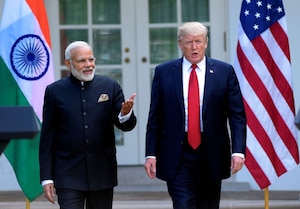The Global Phenomenon Of K-Pop And The Evolution Of Hallyu
In recent years, K-pop has emerged as a star in the Korean Wave, or Hallyu, which encompasses various aspects of Korean pop culture.

Pop music has undergone significant changes in its production and consumption, showcasing the effectiveness of cultural globalization. As pop music expanded beyond its American origins, it found new markets and demographics worldwide, resulting in a transnational industry. This globalization was fueled by demographic shifts, increasing wealth, a growing desire for the "rock aesthetic" in so-called periphery states, and an erosion of traditional values, leading to a yearning for the American way of life. One instance of this phenomenon can be observed in the emergence of K-pop, the Korean pop industry.
K-pop is a rising global phenomenon that has captivated audiences worldwide. In recent years, K-pop has emerged as a star in the Korean Wave, or Hallyu, which encompasses various aspects of Korean pop culture. From their elaborate music videos, killer choreography, and innovative fashion, to their devoted fandoms, K-pop artists have gained unprecedented recognition and popularity, generating billions of dollars for South Korea's music industry.
K-Pop: From Colonial Legacy to Cultural Powerhouse
Korea's history played a significant role in shaping its pop culture. Positioned between two powerful states, China and Japan, and heavily influenced by Cold War politics, Korea experienced a complex cultural evolution. Three pivotal events shaped Korea's cultural identity. They set the stage for the rise of K-Pop: the end of Japan's colonization in 1945, the democratization of South Korea in the late 1980s, and the 1997 IMF crisis leading to the emergence of the "Korean Wave" or Hallyu.
1945: Americanization and Pop Music's Inception
After Japan's colonization, American music quickly replaced traditional Korean sounds. The US promoted its pop culture as part of its Cold War policy to combat communism and establish cultural hegemony. American troops' presence and the advent of American Forces Radio further accelerated the spread of American pop music. Korea embraced the "Americanization" discourse, perceiving the US as a liberator from Japanese colonial rule and a symbol of modernity.
The Korean Wave: Cultural Resurgence and Identity
The 1997 IMF crisis acted as a catalyst for Korea's cultural renaissance, leading to the government-backed "Korean Wave" initiative. As Korea sought to rebuild its economy, K-Pop became a crucial export, aggressively promoted in East and South-East Asia. The Korean Wave was an opportunity to redefine Korea's identity, transitioning from the shadows of its more influential neighbors to a cultural powerhouse. K-Pop stars, such as Rain, BoA, and Se7en, became cultural ambassadors, representing a modern lifestyle that resonated with Asian audiences.
K-Pop's Unique Identity and Global Ascendancy
K-Pop's emergence represents a new stage in cultural globalization, distinct from the Americanization and Japanization eras. While the technology and styles are rooted in American culture, K-Pop takes pride in its Korean identity, connecting with its target audience as a fellow Asian culture. Unlike J-Pop, which aimed to be culturally odorless, K-Pop embraces its Korean roots openly and confidently. K-pop's journey to global prominence can be attributed to its earliest pioneers, such as the Wonder Girls, who cracked the Billboard Hot 100 in 2009 with their crossover hit "Nobody." Since then, K-pop artists have achieved significant success on the global stage, with at least eight songs charting on the prestigious Billboard Hot 100. This tremendous growth has transformed South Korea's music industry into a lucrative $5 billion enterprise, driven primarily by K-pop exports.
The 2018 Winter Olympics: K-Pop's Sociopolitical Significance
The 2018 Winter Olympics in Pyeongchang provided South Korea with a momentous opportunity to showcase its cultural prowess to the world. K-pop music was carefully selected to underscore South Korea's desire to present itself as a fully integrated part of global culture. The presence of K-pop artists during the opening and closing ceremonies signaled K-pop's cross-cultural appeal and fluency, exemplified by songs such as Twice's "Likey" and Big Bang's "Fantastic Baby." Psy's iconic "Gangnam Style" was also featured during the Parade of Nations, further solidifying K-pop's global impact.
K-Pop's Elaborate Production System
K-pop's phenomenal rise to global fame can be attributed to its highly regimented and coordinated production system. Unlike any other music industry, K-pop is meticulously designed to captivate audiences worldwide. The training and development of aspiring artists begin at a young age, with children attending specialized schools and undergoing rigorous singing and dancing lessons. Once selected by music studios, these artists undergo extensive training in their skills, image, and public behavior to meet the studio's vision.
The Three Pillars of K-pop's Global Appeal
K-pop's immense popularity is founded on three key elements: exceptional performance quality, a polished aesthetic, and a highly efficient in-house production system. The music videos, kalgumnmu (razor-sharp moves), and visually captivating aesthetics make K-pop performances a feast for the eyes. As exemplified by Girls' Generation's breakout hit "Gee," K-pop songs are crafted to be fun, infectious, and memorable, all algorithmically produced by the studios.
The Intensity of K-Pop Fandom
K-pop fandoms are unlike anything seen in other music genres. The intense support from fans contributes significantly to the genre's global success. Fans actively participate in live performances, engaging in fan chants and supporting their favorite idols through social media and fan clubs. K-pop conventions, such as K-Con, have experienced exponential growth, attracting thousands of fans worldwide. However, the industry's pursuit of perfection and the pressures of studio life have also given rise to concerns about exploitation and abusive practices.
Modern K-Pop: A Bundle of Colorful Contradictions
K-pop's evolution has brought forth numerous contradictions and complexities. The genre's representation of gender roles is often traditional, portraying women as adorable, shy schoolgirls or empowered individuals seeking validation. Male performance groups, on the other hand, tend to embody a dichotomy of bad boy/sophisticated man.
Nevertheless, K-pop has been increasingly embracing diversity, with artists challenging norms and pushing the boundaries through their music and performances. One striking example of this can be (G)I-DLE's 'Tomboy' which declares independence, rejecting societal norms. The song’s lyrics portrayed that they won't conform to the 'perfect' girlfriend stereotype and refuse to be society's pretty little dolls.
The Future of K-Pop: An Emerging East Asian Cultural Identity
The Korean Wave, emphasizing a distinct Asian cultural identity, signifies a departure from earlier stages where cultural influence was more one-sided. As Korea's economic and political stature rose, it confidently asserted its cultural products, breaking free from the influence of dominant global players. The emergence of K-Pop and the Korean Wave has allowed East Asian countries to connect on a regional level, fostering a sense of shared identity among their urban youths.
As K-pop continues its global ascendancy, it is expected to become even more diverse, with an increasing number of independent artists breaking into the scene. Despite the industry's rigid standards, K-pop artists are finding ways to challenge norms through sophisticated subtexts and modern themes. The genre's ability to evolve while retaining its polished packaging is likely to contribute to its continued global success. Hallyu may experience ebbs and flows, but the K-pop production machine is poised to forge ahead into an exciting and vibrant future.
Related Video
Salman Khan Birthday: Salman Khan Celebrates 60th Birthday in Grand Style at Panvel Farmhouse







































